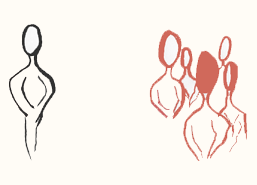For this survey, the focus was on self-understanding cultural differences between South and North European cultures and on whether and how such differences may impact one’s self-esteem assessments and psychological well being.
Data collection concluded: 01/05/2007
Description: The study examined the notion that culture influences the understanding of the ‘ideal’ self which in turns defines the ways it contributes to positive psychological function (self-evaluation, self-esteem, well-being feelings). The critical question is whether an individual posses an ‘independent’ or ‘interdependent’ self. In other words how people in their self-descriptions understands their ‘I’ feeling and whether and how they relate it to ‘other(s)’ in . The Self-with-Other relationship, especially the ‘close-others’, is one of the most reliable ways to identify important cultural differences.
The study involved both older children (8-11 years old) and adult participants
Project staff
Katerina Pouliasi & Maykel Verkuyten

![]() Organization: ERCOMER, Universirty of Utrecht
Organization: ERCOMER, Universirty of Utrecht
Output:
In our current workshops: We enrich our workshops with our scientific findings and set up a variety of situations so that participants can to test and train their potential multi-cultural competence in various domains
This project resulted in the scientific publication: Pouliasi, K., & Verkuyten, M. (2011). Self-evaluations, psychological well-being, and cultural context: The changing Greek society. Journal of Cross-Cultural Psychology; 42, 875-890
Also, presented in international conferences or discussed in other organisations and universities.
Please share it with anyone you think they may be interested in that!
